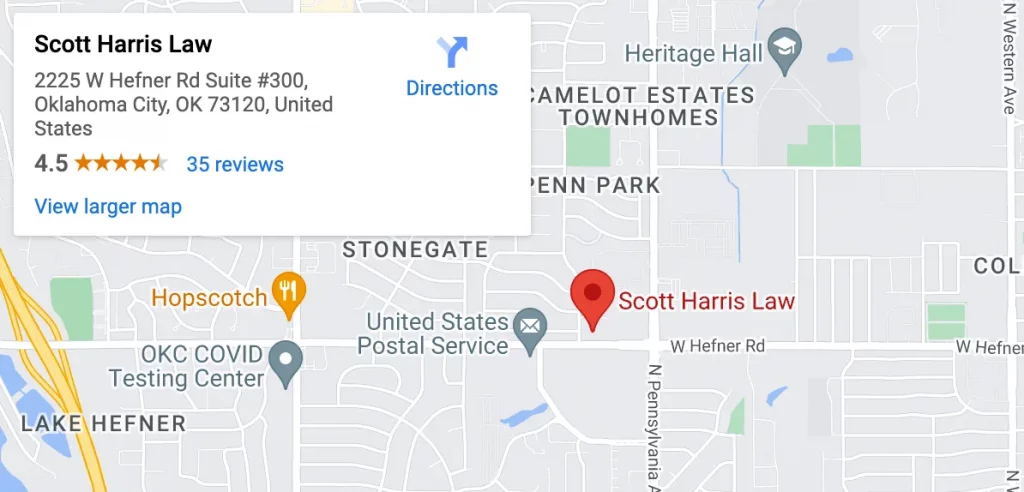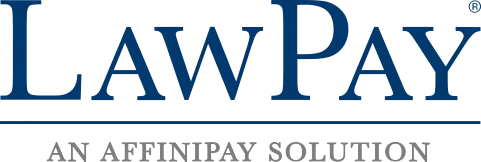Oklahoma City Chapter 13 Bankruptcy Attorney
Being in debt can be emotionally and physically taxing, especially if you have outstanding debts that are past the due date. Fortunately, if you have a stable and regular income but have insurmountable debts, you can file for Chapter 13 bankruptcy to discharge part of your debts.
At Scott Harris Law, PLLC, we have helped our clients through their debt relief journey by providing effective legal advice and assistance. We have handled debt relief situations involving debt negotiation, foreclosure defense, and other issues.
Why do I need a Chapter 13 Bankruptcy Attorney in Oklahoma?
Filing for bankruptcy takes time and work. One must be able to follow particular instructions and fulfill all qualifying requirements. Not only that, but there are situations when you do not have the necessary paperwork, which can cause issues. If you want to avoid this, then hire a lawyer.
Our debt relief attorneys have years of experience and a thorough grasp of the bankruptcy code. They have helped our clients navigate the bankruptcy process, inform them of the necessary requirements, and determine which bankruptcy chapter is best for them.
Schedule a consultation with us today if you want to start your debt relief process!
What is Chapter 13 Bankruptcy?
 When confronted with enormous debts, people may believe they have no way out. Fortunately, there is a legal process known as bankruptcy that may assist individuals who are drowning in debt in getting back on their feet.
When confronted with enormous debts, people may believe they have no way out. Fortunately, there is a legal process known as bankruptcy that may assist individuals who are drowning in debt in getting back on their feet.
Bankruptcy refers to a legal proceeding that assists individuals and businesses in getting out of debt and repaying creditors. In general, a bankruptcy court will facilitate this process through the help of a bankruptcy trustee that acts as an administrator of the bankruptcy case.
Chapter 13 bankruptcy helps the debtor or filer repay their debts to creditors by developing a repayment plan. Most of the time, this path is used by people who have regular salaries but cannot afford to pay the entire balance they owe.
In addition, there are various types of bankruptcy depending on the situation of your financial condition, this includes:
- Chapter 7 (or also known as “liquidation” bankruptcy)
- Chapter 13
- Chapter 11
Which Debts Must Be Repaid?
In every chapter 13 case, the bankruptcy court will require you to pay in full all priority debts. These are debts deemed necessary by the bankruptcy court to be paid first, such as taxes, child support or spousal support (alimony) obligations, mortgages, and auto loan arrearages.
Debts that cannot be paid in full during the bankruptcy process, on the other hand, are regarded as exempt from paying in full. Debts, for example, that have at least 20 years until you may fully pay them will be exempted from being paid in full during your case. However, you must continue to pay these debts when they become due and after your bankruptcy case is completed.
Furthermore, nonpriority unsecured debts are not always completely discharged in every chapter 13 case. Examples are medical bills, student loans, credit card balances, personal loans, and utility bills.
Let our bankruptcy lawyers in Oklahoma city identify which debts must be considered high priority, secured, and unsecured.
How Long Should the Repayment Period Last?
In general, the bankruptcy court will request that you propose a repayment plan that will last 3 or 5 years. The length of your plan will be determined by your average gross monthly income.
Those with an average gross monthly income that is more than the median income in their state must propose a five-year repayment plan. On the other hand, if your average gross monthly income is less, then you must propose a three-year repayment income.
Automatic Stay
When a debtor has tons of debts and is unable to pay them o time, chances are, creditors or debt collectors will start grabbing their properties or flood them with collection notices.
Fortunately, those who filed for chapter 13 bankruptcy will no longer be subject to this burden because the automatic stay will take effect. An automatic stay prohibits creditors or debt collectors from pursuing debt collection.
Moreover, if this goes into effect, debt collection efforts will be halted for the following:
- Repossession
- Wage garnishment
- Foreclosure
- Eviction
- Bank account levy
If you are experiencing harassment from a creditor or debt collector, don’t hesitate to keep in touch with us. Let our bankruptcy lawyers protect you!
Who Is Qualified to File for a Chapter 13 Bankruptcy?
Keep in mind that Chapter 13 bankruptcy is not for everyone. To petition for bankruptcy under this chapter, one must first meet specific qualifying requirements.
In addition to the requirement that you must have sufficient disposable income, you must also satisfy the following requirements:
Bankruptcy Discharges
For you to qualify, you must not have undergone a bankruptcy discharge either in chapter 13 (at least in the last two years) or chapter 7 (within the previous four years).
Business Entities
In general, business entities are not allowed to this type of bankruptcy. Those businesses that operate under the structure of partnerships, corporations, or LLCs are not permitted to file for chapter 13. But there is an exception: those businesses that operate under sole proprietorship are qualified for chapter 13.
Operating as a sole proprietorship implies that you are personally accountable for any debts or liabilities made by your company. In the event of bankruptcy, you and your company will be treated as one and the same.
Debt Limits
Chapter 13 is very particular when it comes to the amount of secured and unsecured debts you have. To qualify, you must have a secured debt of no more than $1,395,875 and an unsecured debt of no more than $465,275.
To put it simply, secured debts are those with collateral tied to them. This implies that if a debtor fails to meet his or her obligations to the creditor, the creditor will be able to seize the collateral.
Unsecured debt, on the other hand, is the polar opposite of secured debt in that it is not secured by any personal property or assets. Examples of unsecured debts are credit card balances, medical bills, personal loans, and more.
Income Tax Returns
To be able to apply for chapter 13, you must show documentation that you submitted your federal and state income tax returns prior to the bankruptcy filing date.
You may submit the actual tax returns or tax transcripts issued by the IRS to your bankruptcy trustee before the first meeting of creditors.
Are you still unsure if chapter 13 is right for you? Call our experienced Chapter 13 bankruptcy attorney in Oklahoma City to help assess your situation.
Steps in Applying for Bankruptcy
Fill out all bankruptcy forms and gather all the required documents
In order to begin any bankruptcy proceedings, the debtor must first obtain and complete the necessary forms that are required by the court. These forms may be retrieved from United States Courts’ website. In addition, your local bankruptcy court may want at least one extra local form. Also, the petitioner will be required to provide documents that illustrate their current financial condition.Attend the required pre-filing courses
In every bankruptcy case, you will be required to attend a credit counseling session before you file for bankruptcy. During this session, an assigned credit counselor will ask questions about the petitioner’s financial situation. The counselor will also identify and suggest alternatives to filing for bankruptcy. Once done, the accredited counseling agency will issue a certificate to the petitioner, which must be included in the petition paperwork. Remember that you must take this course within 180 days before filing for bankruptcy.File the bankruptcy petition
After you’ve completed all of the above processes, the next step is to file your bankruptcy petition with your local federal bankruptcy court. Remember that there is a fee that you must pay.A bankruptcy trustee will be assigned to you
Once your petition has been initially approved, a bankruptcy trustee will be assigned to you to oversee your bankruptcy case. He or she will advise you on the next steps you must take in your bankruptcy case and is also responsible for setting up a 341 meeting of creditors.Start Your Bankruptcy Relief With Our Chapter 13 Bankruptcy Attorney in Oklahoma City!
You should not go through the bankruptcy process alone. Allow our law office at Scott Harris Law, PLLC is here to guide you towards a new fresh start. Our years of bankruptcy law experience ensure that we can successfully and efficiently assist you in filing your bankruptcy case.
Schedule a consultation with us today.




